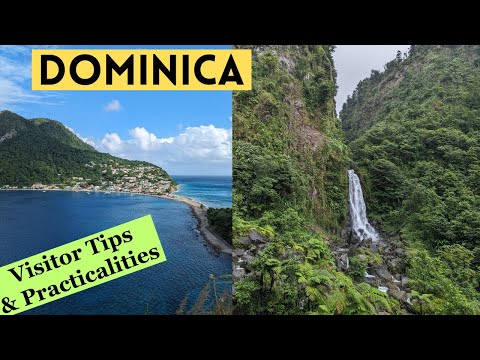
Nestled in the Lesser Antilles of the Caribbean, Dominica is often referred to as “The Nature Island” due to its lush landscapes, diverse ecosystems, and abundant natural beauty. Unlike its neighbors, it’s not known for sprawling sandy beaches but for its mountains, hot springs, waterfalls, and rainforests. If you’re planning a visit to this verdant island, here are some tips and practicalities to help you make the most of your trip.
#### Best Time to Visit
Dominica has a tropical rainforest climate with little variation in temperature throughout the year. The island is warm and can be visited any time; however, the best period to travel is from December to April when it’s slightly cooler and drier. May onwards marks the start of the rainy season which peaks around August and September. Travelers should also be wary of the Atlantic hurricane season that runs from June to November.
#### Getting There and Around
Melville Hall Airport (DOM) is where most international travelers will land. Several airlines operate flights connecting Dominica with other Caribbean islands which then connect further afield. Once on the island, renting a car is recommended for convenience although driving can be challenging with winding roads and steep inclines. Taxis are available but can be expensive for longer journeys.
Public minibusses are an economical way to travel but might not always adhere to a fixed schedule. For those planning extensive exploration particularly in less accessible areas, hiring a tour guide or joining organized excursions can be very useful.
#### Entry Requirements
Travelers will need a valid passport. Visitors from many countries do not require a visa for stays up to six months but check current regulations before you travel as policies may change.
#### Local Currency
The Eastern Caribbean dollar (XCD) is Dominica’s official currency. Prices might also be listed in US dollars especially in tourist areas. Credit cards are accepted by most hotels and larger restaurants but smaller establishments might only accept cash. There are ATMs in major towns but it’s wise to carry some local currency if you’re venturing into more rural areas.
#### Language
English is the official language of Dominica making communication easy for English-speaking tourists; however, you’ll also hear French Creole spoken widely.
#### Accommodations
From eco-lodges nestled deep in rainforests to luxury resorts offering incredible views of the rugged coastline, Dominica offers diverse accommodations tailored towards nature lovers and those seeking tranquility away from typical tourist trails.
#### Food
Dominican cuisine is influenced by Creole techniques with ample use of local herbs and spices along with fresh seafood being abundantly served. Try traditional dishes like Callaloo Soup made from leafy greens or Dominican Stew using dasheen (a root vegetable), yams, plantains among others stewed with meat seasoned heavily with Creole spices.
#### Health & Safety
Dominica is generally safe; however normal precautions should be taken as with traveling anywhere such as guarding personal belongings against theft particularly at crowded places or beaches.
Health-wise there’s no risk of malaria but protection against mosquitoes is advised due to other mosquito-borne diseases like Zika or Dengue Fever.
Visitors should also take care during outdoor activities – particularly hiking or visiting natural sites where trails may not always be well maintained.
Having access to medical facilities especially in remote areas may require planning ahead so ensure your health insurance includes coverage for medical evacuation if needed.
##### Environmental Responsibility
As an island rich in natural resources that it seeks fiercely protected even tourism revolves around sustainability efforts encourage responsible travel behavior: stick paths while hiking don’t litter keep distance from wildlife engage local guides support eco-friendly businesses things that ensure minimal impact environment communities living there lastly don’t forget pack back anything brought especially plastics other non-biodegradable materials helping maintain purity landscapes so cherished visitors locals alike
With these tips mind ready enchanting getaway into heart what truly sets apart fire islands Caribbean – lush unspoiled paradise waiting discovery
